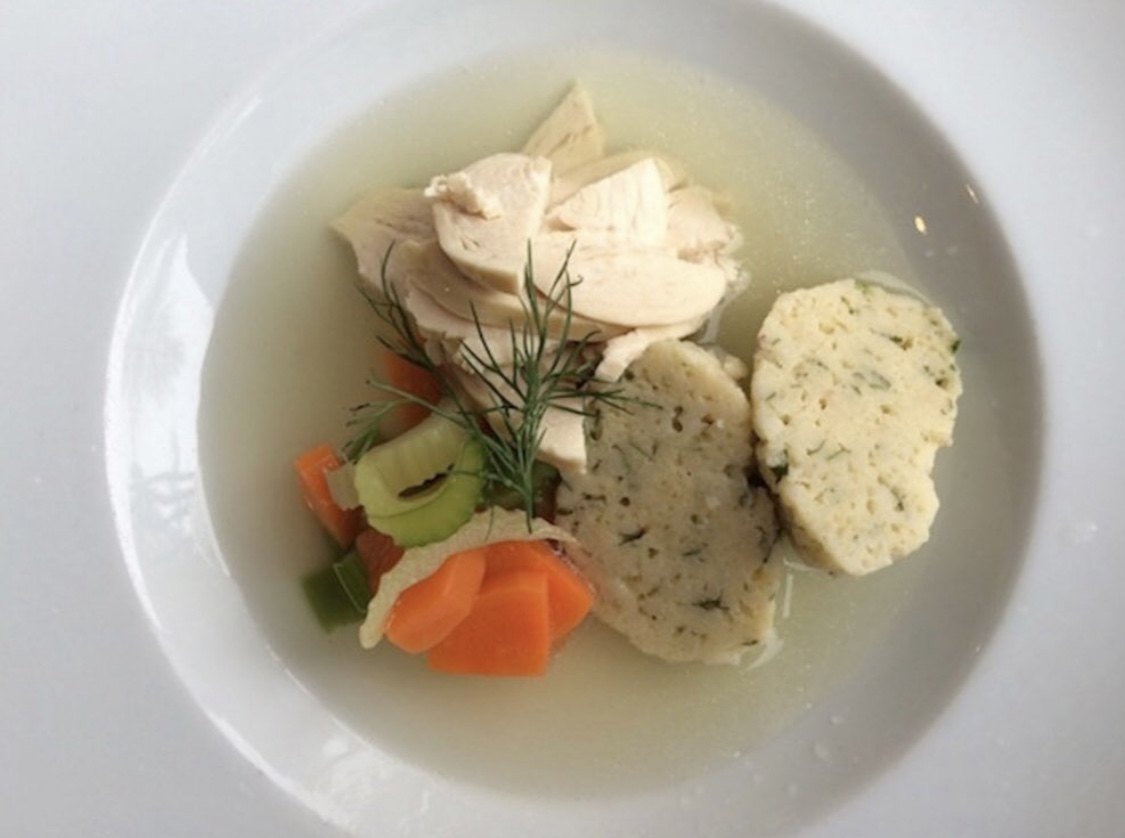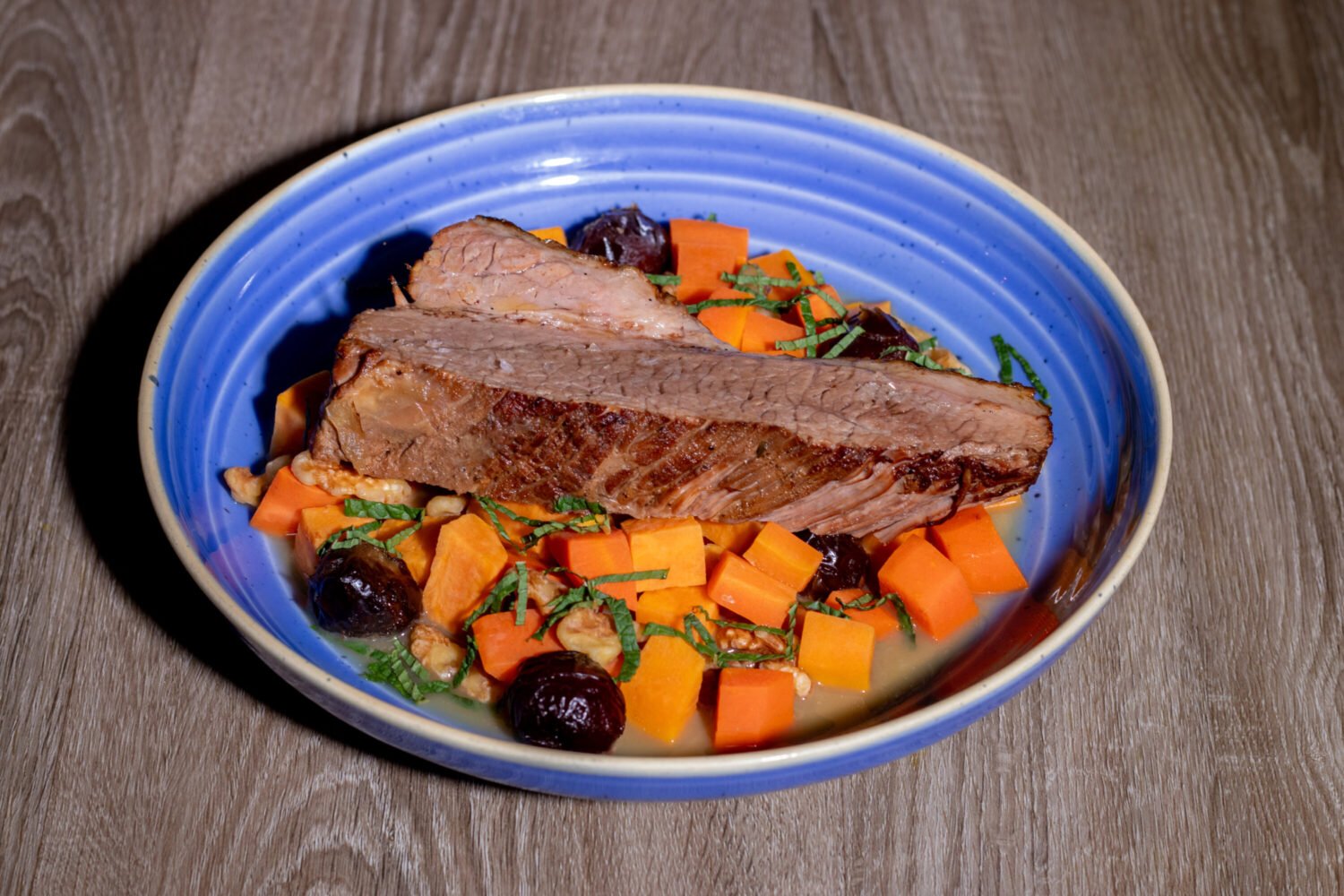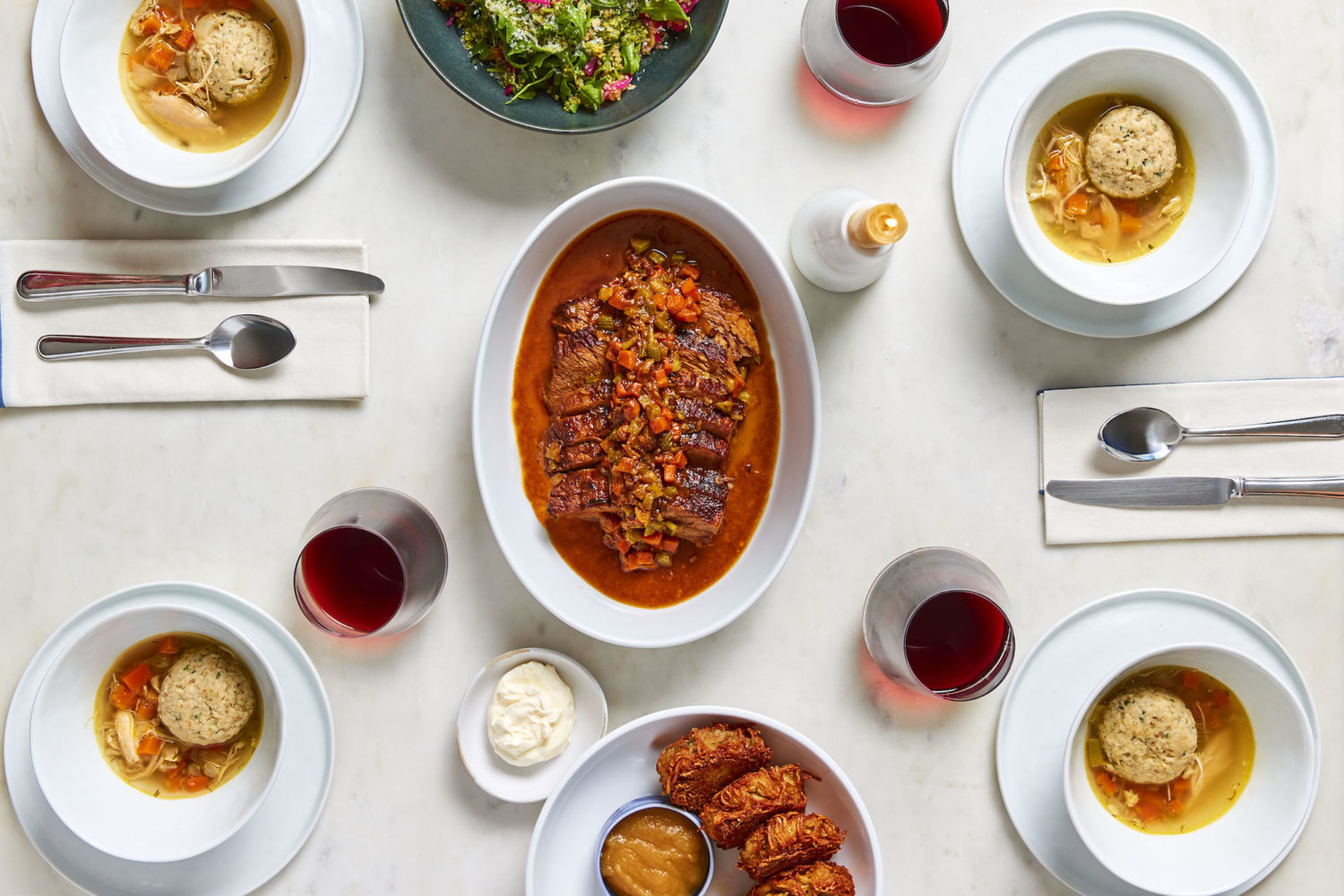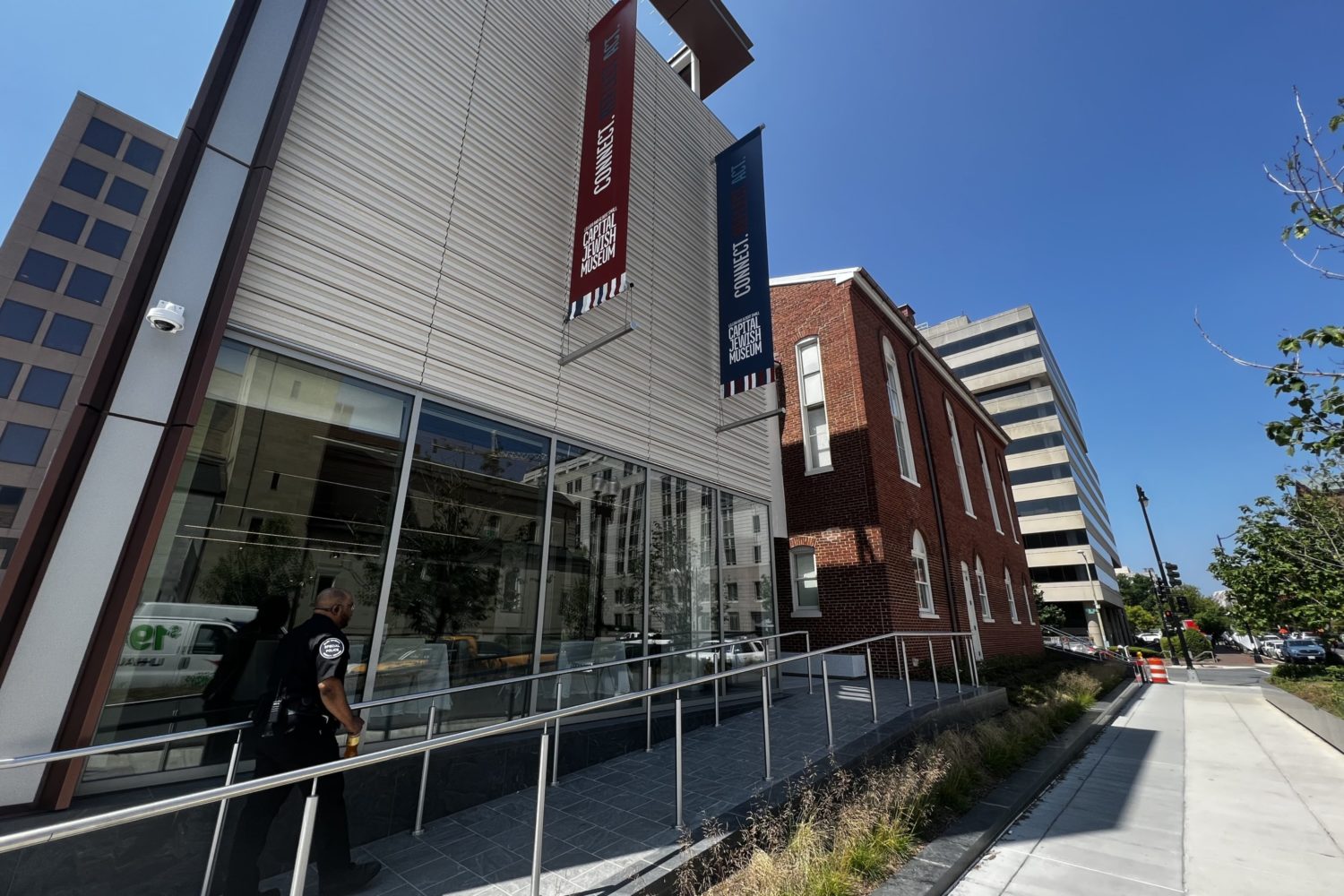On a cool Friday evening in the summer of 1997, Stevie Wonder stopped traffic outside of Felix restaurant in Adams Morgan.
In town for a performance, the musician swung by the restaurant’s Shabbat dinner, which he’d heard about it from a nail salon employee he’d seen for pre-show grooming. Wonder was so enchanted by the band that was performing that he joined them onstage, playing drums to a crowd of 700 that formed outside the opened-door restaurant in the middle of 18th street.
Alan Popovsky, the DC restaurateur behind places like Lincoln and Teddy & the Bully Bar, was Felix’s owner until it closed in 2004. He recalls the night as extraordinary, sure, but not unbelievable, given the weekly dinners’ popularity. Popovsky says the meals drew consistent crowds of over 100 people, and were a destination for young Jewish (and sometimes non-Jewish) singles to mingle, eat, and drink fashionable martinis. Former Washington Post food critic Phyllis Richman called them the place to go if “you can’t get home to Mom’s for Sunday dinner.”
Among Felix’s Shabbat specialties were housemade challah, noodle kugel, and a five-hour-roasted brisket. But one dish was so beloved that Popovsky still sells it today: a matzo ball soup made from the recipe his great-grandmother, Bessie, brought with her to America after fleeing Russian pogroms in 1903.
With the help of an online ancestry site, Popovsky was able to trace his great-grandparents’ escape: they traveled across Western Europe on railroads, boarded a ship in France, and arrived on Ellis Island in 1904, over a year after their journey began. The couple settled in Philadelphia, where, despite pressures to assimilate, Bessie continued to make her long-held recipes. The matzo ball soup was subsequently passed down through three following generations.
Today, Popovsky says that the soup is in such high demand at Dupont Circle hangout Teddy & The Bully Bar that customers even ask for it “in the 90 degree heat.” The recipe has changed slightly over the decades, but its base—shredded chicken with boiled-down carrots, onion, and celery—stays true to Bessie’s original. Newer tweaks include the addition of dill and smaller matzo balls.
Popovsky guesses the soup has remained a favorite because of its cross-cultural appeal: anybody from any part in America could find something familiar in the homey bowl. Still, he recognizes the importance of eating foods that are unique to Jewish culture: “It’s something that keeps you connected, whether to Judaism or to yourself.”
Popovsky is still using food to connect. Once a week he drives up to New Jersey to eat and cook Jewish dishes with his mother, Irene, who is experiencing dementia. The pair cook fried matzo and eat smoked fish and bagels, but regardless of how they prepare the food, Popovsky reports that the act of eating it helps bring his mother back to herself.
“You can see when she eats it,” he says. “It’s like when you hear a song and you remember being on the beach with your family.”
















